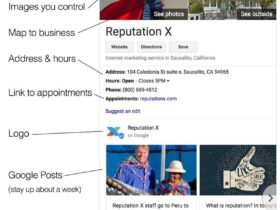Two Illinois state courts recently dismissed defamation claims related to an online article and a disciplinary proceeding conducted by the Champaign Illinois Kennel Club. Both courts found that the defendants were immunized because the statements in dispute were unactionable opinions and were protected under the innocent construction rule. See Law Office of John S. Xydakis, P.C. v. Reiland, No. 2020 L 3990 (Ill. Cir. Ct. May 18, 2021); Boyd v. Crumpler, No. 2020-L-000201 (Ill. Cir. Ct. May 20, 2021).
The first suit, Law Office of John S. Xydakis, P.C. v. Reiland, arose from an article written by Jordyn Reiland and published by the. Reiland, slip op. at 1. The report outlined Judge Margaret Ann Brennan’s remarkable imposition of a $1 million sanction against Marshall Spiegel and his lawyer, John Xydakis. Id. Judge Brennan issued the sanction pursuant to Illinois Supreme Court Rule 137, which is designed to prevent and discourage the filing of frivolous and false lawsuits. Id. at 1-2. The Circuit Court of Cook County found that the legal news website could not be sued for allegedly defamatory statements that are reasonably interpreted as opinions. Id. at 1.
The second suit, Boyd v. Crumpler, stems from a choice encounter between two individuals at the Prairieland Classic Dog Show. Crumpler, slip op. at 4. Scott Boyd, a dog owner, filed suit against Paula Crumpler, a dog show employee, for defamation related to the complaint she issued to the Champaign Illinois Kennel Club. Id. Crumpler reported Boyd following their confrontation during the 2019 Prairieland Classic Dog Show. Id. Namely, Boyd contested Crumpler’s assertion that he “scream[ed] in my face. […] I thought the gentleman was going to hit me.” Id. at 5. After being penalized by the Kennel Club, Boyd filed his lawsuit. Id. The Sagamon County Circuit Court found that the defamation claim arising from the complaint was also constitutionally protected opinion. Id. at 7.
To prove a defamation claim, a plaintiff must show that the defendant made a false statement about the plaintiff, there was an unprivileged publication to a third party by the defendant, and the publication damaged the plaintiff. See Popko v. Cont’l Cas. Co., 355 Ill. App. 3d 257, 261 (1st Dist. 2005). Moreover, under the innocent construction rule, the court must adopt any reasonable construction of an allegedly defamatory statement. See Chi. City Day Sch. v. Wade, 297 111. App. 3d 465, 475 (1st Dist. 1998).
In Reiland, the plaintiffs claimed three sections of the maligned article were defamatory and false. Reiland, slip op. at 2. They objected to a statement that Spiegel’s tactics were a “misuse of the court system.” Id. Plaintiffs also rejected assertions that the award of sanctions would have a “chilling effect” on Xydakis and that Spiegel and Xydakis had had an opportunity to “back off of their positions.” Id. at 2-3.
The Circuit Court stressed that a true statement cannot form the basis of a defamation claim and that each section reflected an opinion of Spiegel’s actions. Id at 1. The statements were based on a disclosed set of facts from the litigation. Id. at 2. As such, these opinions were deemed unactionable and constitutionally protected. Id. at 2-3.
The court found Reiland and the Law Bulletin’s argument that the innocent construction rule bars Xydakis’ claim to be persuasive. Reiland, slip op. at 3. The “misuse” statement, the “back off” statement, and the “chilling effect” statement, viewed in context, were more capable of an innocent construction than a defamatory one and were reasonably capable of a non-defamatory interpretation. Id. The quotes in question were not actionable under the innocent construction rule. Id.
Echoing Reiland, in Crumpler, the court ruled that Crumpler’s complaint reflected speculation (“I thought the gentleman was going to hit me”) based on disclosed facts (Plaintiff was “very rude” was “screaming in my face” and “charged at me”). Crumpler, slip op. at 7. As such, Boyd’s defamation claim failed because Crumpler presented her opinions and theory about discrete facts and allowed the audience to draw its own conclusions. Id.
Boyd’s allegations also failed due to the innocent construction rule. Id. at 6-7. The court opined that although the Crumpler statement reflected an unpleasant situation and inappropriate conduct, it did not portray criminal activity. Id. at 6. The Crumpler statement was therefore reasonably capable of an innocent construction and was nonactionable on that basis. Id. at 6-7.
Collectively, these cases reiterate the efficacy of the opinion defense for defendants in defamation suits. Defendants may be immunized from liability if their statements speculate about a disclosed set of facts or are reasonably capable of an innocent construction.
Special thanks to Joe Rosenbaum for contributing to this post.













